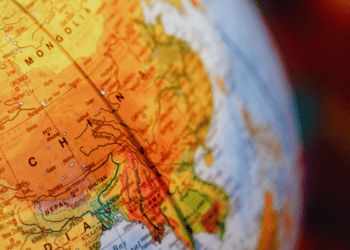This article originally appeared in the Globe and Mail.
By Blair Gibbs and Aaron Wudrick, October 12, 2022
We have known for some time that today’s young people face more debt, more job competition and lower relative incomes than their parents and grandparents at the same age. But when we surveyed 1,509 young people – including those who did not attend college – we found there is a worrying lack of optimism about their economic prospects across the board.
In research undertaken for the Macdonald-Laurier Institute, we explored the economic outlook and attitudes of young adults aged under 30 who were born or went to school in Canada. What we found paints a picture of a generation frustrated by intergenerational inequality and a strong sense that the deck is stacked against them.
Take for instance that fewer than 40 per cent of young Canadians expected to enjoy a better standard of living than their parents. Only 34 per cent are optimistic that their earnings will increase in the next five years and only 25 per cent are optimistic that the Canadian economy will improve in the next five years. Notably and predictably, young people who had benefited from financial support from family were significantly more optimistic.
The most important issues for young Canadians were bread-and-butter worries such as the cost of living, house prices and job security. Racism, gender discrimination, climate change and other concerns, which are typically assumed to be the most important issues for young people, were comparatively less important.
This pessimism seems to be a result of a wider realization: Making economic progress is harder for younger people than it was before, and it has become harder since the onset of the COVID-19 pandemic. Though every generation confronts change and challenge, the issues facing those younger than 30 appear particularly acute. Many young people had given up on ever owning a home, so were not actively saving for a down payment and fewer than a third of those surveyed (31 per cent) believe it is likely they will own a home in the next 10 years.
In 2022, young Canadians are facing a wave of economic disruption while saddled with more debt than their parents, and while owning fewer assets in an inflationary environment. As they graduate high school or college, this cohort is also emerging into a period of tighter credit, higher interest rates and industrial unrest, which may also make it harder to find their footing. And unlike their parents in the 1970s and 1980s who also had to endure high inflation and high interest rates, the goals of home ownership look unattainable because prices are already so high and disconnected from average earnings.
And in our national polling, more than 60 per cent of participants agreed that older Canadians do not understand the struggles of younger generations. They believe younger Canadians have a harder economic hill to climb, and those who are asset and income rich simply do not understand it.
Research from the Environics Institute and other sources show the deck is clearly stacked against young Canadians on many metrics, such as housing affordability, and that the COVID pandemic has made their relative position worse. This matters because society as a whole will feel the consequences in terms of smaller families and future generations of working Canadians that are less financially secure. Politicians need to start to promote bold policy reforms that befit the scale of the challenge rather than ignoring the problem for another decade and expecting the resentment to dissipate on its own.
The best public-policy response to the intergenerational inequality of today’s Canadian economy does not point one way: Lower house prices or cheaper child care would help, but they are not simple to deliver and will not by themselves address major structural trends that have led to falling productivity, lower wage growth and ballooning personal and public debt.
The overriding conclusion from this study is that the policy environment should take the generational question seriously and not dismiss it as if the complaints of today’s young adults are transitory. If the ladder to a middle-class lifestyle of opportunity and assets is not restored for younger people, the generational divide that is fuelling pessimism among Canada’s under 30s could turn to resentment and even anger. Expressed politically, such anger could lead to a significant and disruptive political realignment that today’s political parties are not prepared for.
Blair Gibbs is a policy consultant and a former senior adviser to former British prime minister Boris Johnson. Aaron Wudrick is the director of the Macdonald-Laurier Institute’s domestic policy program.






